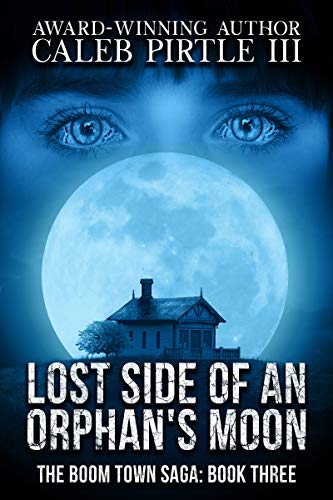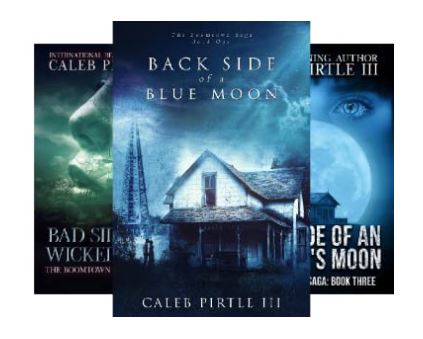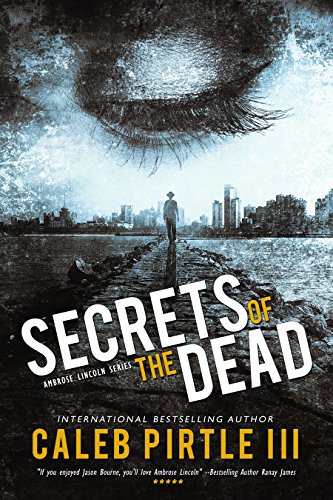by Rox Burkey
I simply love chatting with authors. I am thrilled to share my discussion with Caleb Pirtle III. Caleb is an award-winning author of more than eighty books. I know you don’t want to miss this discussion and share it with your friends.
Caleb, since you prefer the past, how about sharing some of your illustrious background.

I knew from the time I could spell a word with more than three letters that I wanted to be a writer. I grew up on a farm, and my earliest memories were sitting on someone’s front porch at night, listening to one person, then the other, tell stories. In East Texas, that was simply known as carrying on a conversation. I wanted to tell stories. I wanted to write them.
I majored in journalism, worked small-town newspapers like the Mount Pleasant Times and a large newspaper like the Fort Worth Star-Telegram. I spent a lot of time on the Police Beat, which is why I write mysteries. I wrote so many feature stories on Texas that Governor John Connally hired me to promote travel in the state when he established the Texas Tourist Development Agency. I moved on to become the first travel editor for Southern Living Magazine in Birmingham, Alabama, then returned to Texas and worked as editorial director for a custom publisher in Dallas for the next twenty-five years. When I retired, I began writing fiction, as well as creative nonfiction, and produced screenplays with my writing partner in Los Angeles for CBS television and TNT.
I truly enjoy having you visit. Your work as a newspaper reporter and travel editor opened doors most of us don’t realize exist. Your college years started your award-winning, is there a specific award you were most proud to receive?
When I was a senior at The University of Texas, I was sent to the Lower Rio Grande Valley to interview the parents of Nick Rowe, the first American soldier captured in Vietnam. We didn’t know we had soldiers in Vietnam. Most of us had never heard of Vietnam.
When I arrived at the Rowe home, the yard was filled with reporters from every major newspaper in the United States, including the New York Times and Washington Post. Network TV reporters and cameramen occupied every single inch of ground. Nick Rowe’s parents refused to meet with any of them, but they agreed to let me come in for an interview because Linda was with me. Mr. Rowe said she looked like Jacqueline Kennedy.
My feature story filled up the entire page of the Daily Texan, and I became the first student at the university to win the National Randolph Hearst Award for feature writing. That award meant the most. It told me that if I worked hard enough, I might have a chance to make a career in the writing game.
I know most of your stories take place in a short time period. Why is this important to your storytelling?
I think I am influenced by my newspaper days. Most of the major stories I covered took place within a short time frame. As a result, my historical thrillers and mysteries usually take place within three or four days, hardly ever longer than a week. Stories are all about characters, and I believe a short time period allows me to better squeeze the emotions out of the characters if I don’t give them a week or a month or a year or two to relax and escape the tension they feel when they are smothered by whatever heinous event they witness or experience. Hopefully, I can capture a reader’s emotions and keep them immersed with the grief or the fear or the suspense of the moment. I am afraid if I ever give them the chance to breathe, I may lose them.
Caleb, I know you are an excellent writer, heaven knows you’ve had enough practice, but your storytelling skills are honed to fine point. What was your process for this ongoing excellence?
I believe in my characters. I don’t write the stories. They do. I whisper a basic plot to them, then duck and get out of the way. In reality, I sit down and write a first sentence, then see where the characters take me. I follow along and write down what they do and say. Usually, I write the first paragraph and the last paragraph of a book at the same time. If I know where I am and where I’m going, I can get there. It’s like a map.
However, I always have to write a new last paragraph because the old one no longer makes any sense. And that means I have to go back and re-write the first sentence because my characters didn’t follow the map. In Lost Side of an Orphan’s Moon, for example, I was so excited when I suddenly reached page 256. That was the first time I knew who killed the fancy dancer and why.
I thorough enjoyed your 3rd book in The Boom Town Saga. I posted my review on this site if readers wish to take a look .
Your fictional works often focus on Texas locations and events. Is there a reason you choose these?
I know Texas. I know its people. I know its traditions. I can feel the blood pulsing through its veins. I spent so many years writing about small-town Texas that I know its secrets, and everyone in town has some. Go down to the local coffee shop at five in the morning when the farmers and ranchers go in and by ten o’clock you know every scandal in town. You don’t have to read the newspaper. You know who did what to whom and why they did it.
The locale for my Boom Town Saga, for example, is a small East Texas town during the Great Depression when money was gone and everybody was struggling to survive. A wildcatter, who was probably a con man, struck oil. And here came wealth, jealousy, greed, and murder. I grew up in Kilgore, a small East Texas town that was dragged from the Great Depression by the greatest oil boom in the nation. I walked the streets, knew the characters, and heard their stories on front porches, in barbershops, and at funerals. After all these years I’m putting them into print. The most outlandish of the stories are the true ones.
In your books your characters are well developed and like people one really knows at the end of the story. Where do you come up with the ideas for the characters in your books?
I try to tell stories through the eyes of those who are living it. I use dialogue and especially internal dialogue. Who do my characters see, what do they feel about it, and why do they fear what’s going on around them. Why don’t they sleep at night and why are they afraid to look out the window. What happens is not as important as the people who make it happen. And the action, for me, works only if I can tell what those characters think and feel and fear about each twist and turn of the story evolving around them.
A woman may cry at the funeral, but inside she’s glad he’s dead. A man may laugh his way through the funeral, but his heart is breaking. People are hardly ever who they seem to be. What makes them fascinating is finding out who they really are and what it is they are hiding.
You have several series and individual works. At what points for you does a story deserve a series versus a one is enough?
Every book I write is meant to be a single book. I never think it will become a series. Write the final sentence. Slam the final period in its rightful place, and I’m through. But when I wake up in the middle of the night and hear my main character whispering, “I’ve got another story to tell you,” I know, whether I want to or not, that I’m obligated to write another book in the series I never intended to write.
Your book covers are distinctive and complex, where do you get your ideas for them?
I don’t have any ideas for a cover. I write a synopsis of the story and turn it over to a designer. For the Ambrose Lincoln series, I wanted to create new covers for the first three books. We turned them over to a designer and did not hear back from her for two or three months. No emails could get through. No phone calls. Finally, she got in touch with me, apologized, and said she had been deathly ill and in a coma for two months. As soon as she awoke, her first thoughts were the need to create my cover designs. She looked on the table beside her bed, and they were already designed. She doesn’t remember doing any of them, but they all worked perfectly.
You write in several genres. Do you have a favorite to write in?
I will write in any genre as long as it is about the past. The present day bores me. I am fascinated about those who fought their way through earlier times. Mostly I write historical mysteries and historical thriller with an occasional nonfiction book thrown in. Even those are about the past – Gamble in the Devil’s Chalk about the Giddings Oil Boom in the ‘70s, XIT: The American Cowboy, No Experience Required about Jackie Sherrill’s 12th Man Kickoff Team at Texas A&M during the 1980s, and Never Afraid, Never A Doubt, the biography of a 93-year-old Hall of Fame basketball coach.
I am looking forward to reading the Never Afraid, Never a Doubt, because of the detailed interviews you conducted to get all the background!
I, for one, would love to know about your writing process and how it has evolved?
In the beginning, I could write purple prose with the best of them. If a paragraph was seven sentences long, I thought fourteen sentences would make it twice as good. Now my prose is spare and cut to the bone with every word chosen on purpose to evoke an emotion. Short sentences. Short paragraphs. Short chapters. In fact, my obituary will be four words: “Died. Didn’t expect it.”
What methods do you use today to reach out to fans and share new stories?
We have our Website – calebandlindapirtle.com – and reach anywhere between 20,000 to 30,000 viewers a month. We use the site to promote our work with blogs, as well as spotlight the books of other authors. At last count, we had showcased more than 9,000 books, and we continue to provide exposure for books through social media and in our monthly newsletter.
Linda and I strongly believe this writing game is not a competitive one but a cooperative one. We promote other authors. So many of them, in turn, promote our books. We also spend too much time on social media. It’s like the old adage in advertising: “We know only fifty percent of our advertising works, but we just don’t know which fifty percent it is.” So we keep firing and hope some of the bullets find their mark.
How many hours a day do you put into your writing?
Between writing blogs and actually working on books, I spend about four hours a day knocking out words. I don’t sit and think about what I’m going to write, I just write down the thoughts that crawl out of my imagination.
Caleb, I love the time we spent chatting. Your comments are fun, intriguing, and inspiring just like the books you write. You provide a lot of choices for people to get to know and love your writing. You are a remarkable person I am grateful to know.
I look forward to reading and reviewing more of your books. Thank you for the great conversation.
Find and Follow Caleb Pirtle III
Email: calebpirtle2@gmail.com
Related Content:
- None Found







